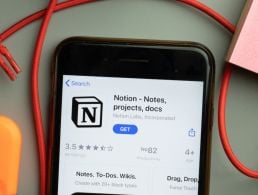These days, jobseekers are expected to have more than just experience and good interview skills, with some employers now formally assessing personality.
Although we’re used to having many parts of our lives tested — our health, our car, our ability to conjugate a French verb — the concept of personality testing is uncharted territory for most employees. What does the concept even mean? Is it possible to have the ‘wrong’ personality or, even more humiliatingly, can you fail such a test?
One woman who has plenty of experience in the phenomenon of personality testing is Michelle Murphy, regional manager with Collins McNicholas Recruitment in Galway. She says the concept has grown in the past five years, not just among multinationals in Ireland but also among indigenous companies seeking the right person for a particular job.
“The purpose of personality tests is to benefit the employer during the selection process,” she says. “It helps him or her identify if you have, firstly, the skills and experience, and secondly, the motivation for the company in question. It also helps ascertain if you are going to fit in with the organisation.”
Murphy says she often advises clients to put in place a personality test for candidates before the second-round interview stage. “It tends to be one of the fairest ways of hiring someone as it’s such a transparent method.”
She adds: “Personality testing has become more important as companies and offices have become less autocratic. A personality questionnaire quantifies your intrinsic personality characteristics as well as feelings, thoughts and behaviour.”
But what does this boil down to in terms of the test? Murphy explains: “You will be given a particular statement or scenario, for example, ‘I have clear personal goals’. Then you are asked to rate it by ticking either ‘I agree’, ‘I agree somewhat’, ‘I disagree somewhat’ or ‘I strongly disagree’. You must pick the one that is most relevant to your personality.”
Surely it must be tremendously tempting to be somewhat lenient with the truth? “You should be as true to yourself as you can,” says Murphy. “These tests can’t be passed or failed and there are no right or wrong answers.”
There’s another reason why honesty is the best policy when doing a personality test. “A lot of these tests have in-built systems that guard against manipulation by the person taking the test. Often the same kind of question will be asked twice, but phrased in a different way, so it will reveal if you’re attempting to fake it.”
So how should prospective employees approach this kind of testing during the interview process? Is it something they need to practise? “This is not the Leaving Cert. Obviously, you’re going for a job and it is important, but if you read too much into it, you will work yourself into a frenzy trying to second guess what the employer wants. You should just answer in a way that is true to yourself,” she says.
Although personality tests have risen in popularity in recent years, Murphy underlines the fact that they are only part of the process of hiring the correct person for a job. “A personality test is a step in the process rather than the deciding factor,” she explains. “Companies often look at the results of a personality test and base questions for the second-round interview on them.”
Try the Big Five Personality Test.




